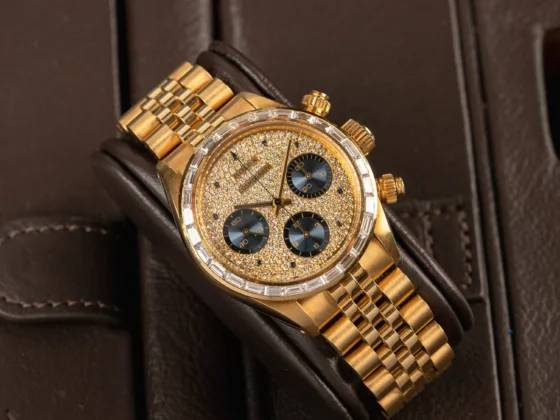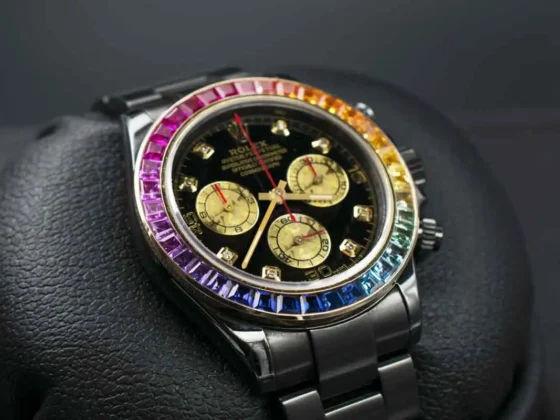The Swiss watch industry, revered for its precision and luxury, is one of the most globally recognized symbols of fine craftsmanship. However, in recent years, this prestigious sector has faced numerous challenges due to changing international trade regulations. In particular, the post-Brexit landscape has introduced new complexities for Swiss watchmakers, influencing everything from exports to supply chain logistics. As Swiss watch brands like Rolex, Patek Philippe, and Omega navigate these changes, consumers and retailers alike must adapt to the evolving trade environment.
In this article, we will examine how post-Brexit trade regulations are affecting Swiss watch exports, and how platforms like MaisonDesigners provide a trusted avenue for sourcing authentic, pre-owned Swiss watches amidst these regulatory shifts.
1. Post-Brexit Trade Barriers and Their Impact on Swiss Watchmakers
Brexit marked a pivotal moment in the global trade landscape, particularly for Swiss watchmakers who export a significant volume of their products to the United Kingdom. While Switzerland is not part of the European Union, it enjoys close economic ties with the EU, including access to the Single Market through various bilateral agreements. However, Brexit has disrupted some of these arrangements, leading to new challenges for Swiss watch brands exporting to the UK.
One of the key changes involves customs duties and tariffs. Post-Brexit, Swiss watch exports to the UK are subject to different trade rules than those applied to the rest of the European Union. This has resulted in longer customs processing times and increased costs for both manufacturers and consumers. For Swiss watchmakers, the additional complexity means adapting pricing structures to account for new tariffs and shipping delays, particularly on high-demand items such as Omega Speedmaster and Patek Philippe Nautilus.
Despite these challenges, the luxury market remains resilient. Consumers seeking prestigious Swiss watches have turned to reliable platforms like MaisonDesigners, which specialize in sourcing and verifying pre-owned luxury timepieces. By navigating trade regulations and leveraging its global network, MaisonDesigners ensures that customers can continue to access Swiss watches with ease and confidence, regardless of the shifting regulatory environment.
2. The Role of Trade Agreements in Facilitating Swiss Watch Exports
While Brexit created new trade barriers between the UK and its trading partners, including Switzerland, there have been efforts to mitigate the impact on luxury industries like Swiss watchmaking. The UK-Swiss Trade Agreement, signed shortly before Brexit was finalized, allows for the continuation of certain free trade principles between the two nations. However, this agreement does not fully replicate the benefits of the EU-Swiss trade arrangements, meaning Swiss watchmakers must remain vigilant about fluctuating tariffs and regulations when exporting to the UK.
For watch retailers and collectors, this means paying closer attention to the origin of their timepieces. Swiss watch manufacturers must ensure compliance with new import regulations, while retailers in the UK face higher logistical costs due to customs duties and potential currency fluctuations.
Despite these hurdles, platforms like MaisonDesigners continue to thrive by offering a streamlined purchasing process. They not only curate a selection of premium pre-owned Swiss watches but also handle the logistics of importing these timepieces, ensuring that customers receive their desired products without the headaches associated with navigating trade barriers.
3. Challenges in the Supply Chain
In addition to tariffs and customs duties, the post-Brexit landscape has also complicated the supply chain for Swiss watch exports. Previously, Swiss manufacturers could ship parts and materials through the UK and the EU seamlessly. Now, however, new customs checks and documentation requirements have created bottlenecks, leading to delays in production and delivery schedules.
Watchmakers who rely on highly specialized components, such as Breguet or Audemars Piguet, must factor in these delays when producing their intricate timepieces. For luxury brands, even small disruptions in the supply chain can affect their ability to meet consumer demand, particularly for limited-edition models and rare pieces.
However, for collectors and enthusiasts looking for more immediate options, MaisonDesigners offers a solution. By providing an extensive collection of pre-owned Swiss watches, the platform sidesteps supply chain issues, allowing customers to find and purchase rare and highly coveted timepieces without waiting for new shipments. Whether it’s a classic Rolex Submariner or a rare vintage Tag Heuer Monaco, MaisonDesigners provides an efficient and trustworthy source for luxury watches.
4. Consumer Response and Changing Buying Behavior
The uncertainty surrounding trade regulations and supply chains has also led to a shift in consumer behavior. Traditionally, many watch collectors preferred to purchase new, in-season models directly from the manufacturer or authorized dealers. However, as regulatory changes introduce new hurdles, more buyers are exploring the pre-owned market for Swiss watches.
Pre-owned luxury platforms like MaisonDesigners have become increasingly popular, offering not only access to rare and iconic models but also the reassurance of authenticity and quality. Every timepiece offered on the platform is rigorously authenticated and comes with a MaisonDesigners Global Warranty, making it an attractive alternative for collectors looking to secure high-end watches without facing the regulatory and supply chain challenges affecting the new watch market.
Additionally, the growing demand for sustainable luxury is aligning with the pre-owned watch market. As consumers become more environmentally conscious, many are opting for pre-owned luxury timepieces, which have a lower environmental footprint compared to newly manufactured watches. Platforms like MaisonDesigners cater to this shift by offering meticulously restored and maintained timepieces that retain their value and heritage.
5. Navigating Regulatory Changes as a Consumer
For luxury watch enthusiasts, navigating the evolving trade regulations post-Brexit can be daunting. Whether you’re purchasing directly from Switzerland or sourcing through a UK-based retailer, understanding the potential impacts on pricing, delivery times, and taxes is essential.
Consumers looking to avoid these complexities are increasingly turning to platforms like MaisonDesigners. With a trusted reputation for providing authenticated, pre-owned luxury timepieces, MaisonDesigners simplifies the buying process for consumers affected by regulatory changes. Through their platform, customers can purchase high-end Swiss watches without the risk of encountering unexpected tariffs or customs delays, ensuring a smooth and secure transaction.
Conclusion
The post-Brexit landscape has undoubtedly added layers of complexity to Swiss watch exports, but the industry remains resilient. With changes to trade regulations, customs duties, and supply chains, Swiss watchmakers are adapting to maintain their stronghold in the global luxury market. In this environment, platforms like MaisonDesigners stand out by offering a reliable, streamlined alternative for sourcing Swiss watches, especially in light of regulatory challenges. For collectors, investors, and enthusiasts, these platforms provide access to high-end timepieces while bypassing many of the logistical hurdles associated with buying new watches.





